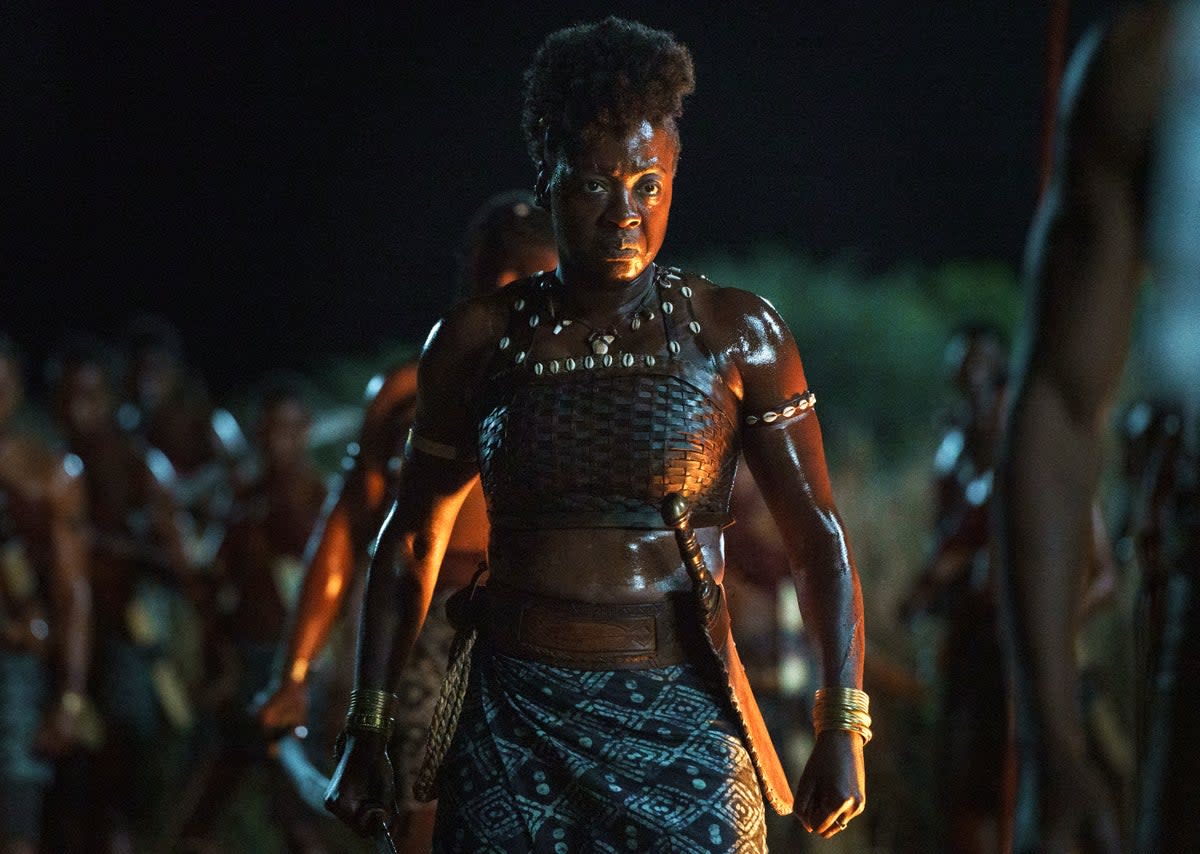Voices: No, I won’t be boycotting The Woman King

- Oops!Something went wrong.Please try again later.
When I saw the trailer for The Woman King online a couple of months ago, I wasn’t impressed. Another Hollywood movie with violence, war, and slave-trading at the center? Really?
But it was the rising calls for a boycott of Sony’s latest action-drama that piqued my interest and moved me to go see the film — twice. I’ve also urged other Black Americans like me to support the film, not just for its stunning cinematography, superb acting, and gripping narrative, but for the very issues that are stirring a spirited protest and the viral hashtag #BoycottWomanKing.
Since the debut of The Woman King two weeks ago, fans and critics have denounced the film, both for its extensive creative license with historical events and for what some call a trivialization of the Atlantic slave trade. The film, they say, omits, downplays, or even glorifies the barbaric events that took place in the west African kingdom of Dahomey, what is now modern-day Benin, the setting for the film. Other critics say the slave-trading Agojie deserve no screen time.
It’s obvious early on in the film that the kingdom’s all-female elite Agojie army, on whom the film is based, engages in large-scale human sacrifice and constantly raids other villages by night, taking plenty of prisoners to sell into slavery. And by all historical accounts, the Agojie engaged in the pernicious acts that were shown on the big screen.
That didn’t stop me from watching, and even celebrating the fact that this tale of the most powerful all-female regiment of warriors in world history, led by a middle-aged woman, performed relatively well during its first weekend at the box office. My ancestors arrived on the shores of the Americas via slave ships from western Africa. Nothing about that is simplistic, glorious, or one–dimensional. But that history — and the history of Black people in the United States — too often presents Black people as victims: beaten, downtrodden, or the beneficiaries of white saviors. Never complex.
Here is a film where gorgeous and powerful women with dark skin, hair in cornrows, and garments adorned with cowrie shells were front and center, flawed but strong. I cringed, wept, winced, and laughed as I saw myself through these women. They were loyal, fearless, courageous and, yes, loving, without being defined by or deferring to men. And it wasn’t just representation that mattered in this movie; I was thoroughly entertained as I watched it thunder toward a satisfying conclusion. Those are the marks of a solid fictional film. And, like the film’s director Gina Prince-Bythewood (Love and Basketball, The Secret Life of Bees) said, there’s great power in writing happy endings.
Before Black Panther and The Woman King, life in Africa had long been depicted in the media as uncivilized before European colonizers came along. These new works of fiction, both directed by Black Americans, show Africans as strong, yet flawed and nuanced. I’m hoping the movie generates more global interest and more films on African history, even if parts are fictionalized. And I’ll continue to support films that showcase women as the nuanced, multidimensional beings that we often aren’t allowed to be. I’m giving no more energy to the male-dominated protests or the #BoycottWomanKing hashtag, which is riddled with misogyny and anti-gay bias.
Princeton professor Leonard Wantchekon, a native of Benin who’s listed in the credits as a historical consultant, stressed to History.com that it’s important to consider that this sisterhood of women were not just warriors, but respected social and political leaders of their community. “When we push back against [colonialist] misconception[s] and embrace the culture of gender equality that was thriving in Benin and places like it before colonization,” he says, “it is a way to embrace the legacy of this exceptional group of African female leaders that European history tried so hard to erase.”
Go see the film, read up on the history like I did, and then make an informed assessment. Like any other work of art, it deserves thoughtful critique and opens the door for a nuanced discussion. Or, wait for the historically accurate documentary, which likely will go straight to Netflix.

